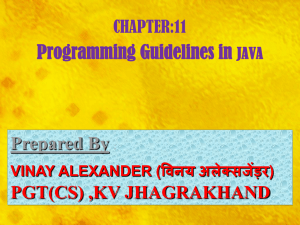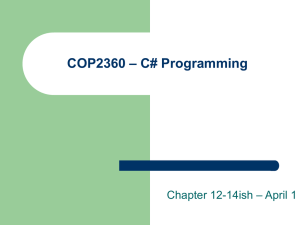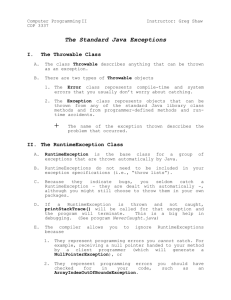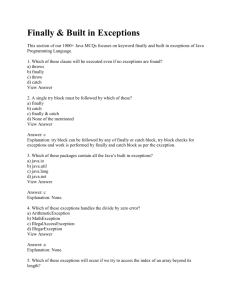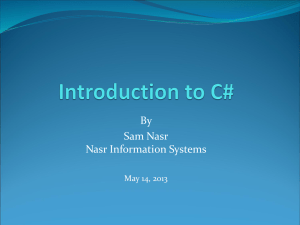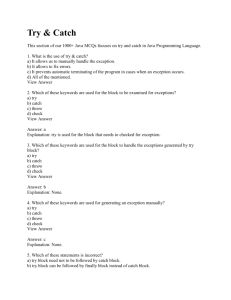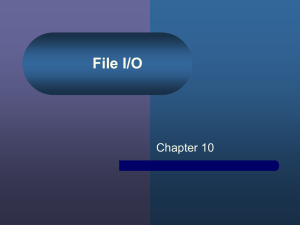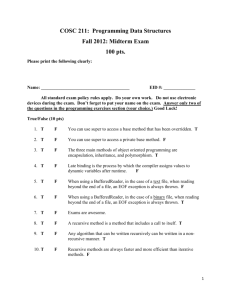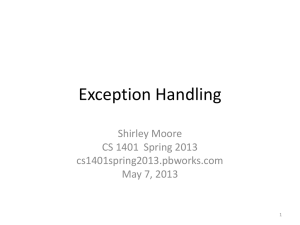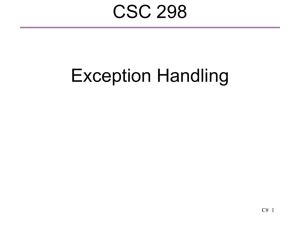Exceptional Handling Basics
advertisement
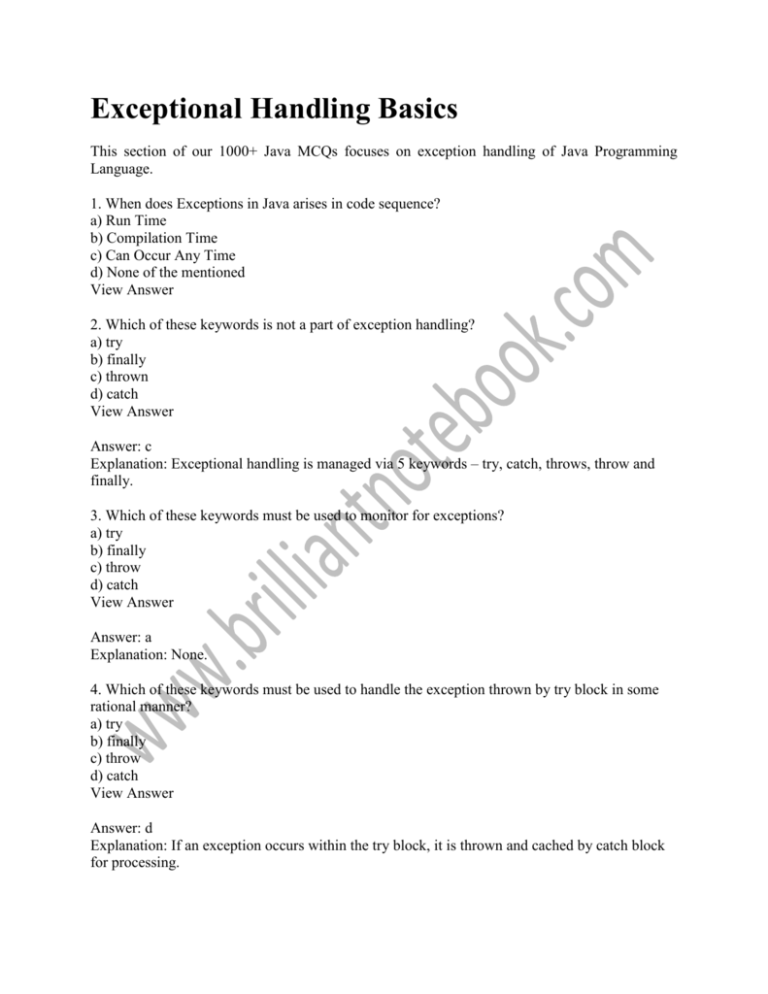
Exceptional Handling Basics
This section of our 1000+ Java MCQs focuses on exception handling of Java Programming
Language.
1. When does Exceptions in Java arises in code sequence?
a) Run Time
b) Compilation Time
c) Can Occur Any Time
d) None of the mentioned
View Answer
2. Which of these keywords is not a part of exception handling?
a) try
b) finally
c) thrown
d) catch
View Answer
Answer: c
Explanation: Exceptional handling is managed via 5 keywords – try, catch, throws, throw and
finally.
3. Which of these keywords must be used to monitor for exceptions?
a) try
b) finally
c) throw
d) catch
View Answer
Answer: a
Explanation: None.
4. Which of these keywords must be used to handle the exception thrown by try block in some
rational manner?
a) try
b) finally
c) throw
d) catch
View Answer
Answer: d
Explanation: If an exception occurs within the try block, it is thrown and cached by catch block
for processing.
5. Which of these keywords is used to manually throw an exception?
a) try
b) finally
c) throw
d) catch
View Answer
Answer: c
Explanation: None.
6. What is the output of this program?
1.
2.
3.
4.
5.
6.
7.
8.
9.
10.
class exception_handling {
public static void main(String args[]) {
try {
System.out.print("Hello" + " " + 1 / 0);
}
catch(ArithmeticException e) {
System.out.print("World");
}
}
}
a) Hello
b) World
c) HelloWorld
d) Hello World
View Answer
Answer: b
Explanation: System.ou.print() function fist converts the whole parameters into string and then
prints, before “Hello” goes to output stream 1 / 0 error is encountered which is cached by catch
block printing just “World” .
Output:
$ javac exception_handling.java
$ java exception_handling
World
7. What is the output of this program?
1.
2.
3.
4.
5.
6.
7.
8.
9.
10.
class exception_handling {
public static void main(String args[]) {
try {
int a, b;
b = 0;
a = 5 / b;
System.out.print("A");
}
catch(ArithmeticException e) {
System.out.print("B");
11.
12.
13.
}
}
}
a) A
b) B
c) Compilation Error
d) Runtime Error
View Answer
Answer: b
Explanation: None.
Output:
$ javac exception_handling.java
$ java exception_handling
B
8. What is the output of this program?
1.
2.
3.
4.
5.
6.
7.
8.
9.
10.
11.
12.
13.
14.
15.
16.
class exception_handling {
public static void main(String args[]) {
try {
int a, b;
b = 0;
a = 5 / b;
System.out.print("A");
}
catch(ArithmeticException e) {
System.out.print("B");
}
finally {
System.out.print("C");
}
}
}
a) A
b) B
c) AC
d) BC
View Answer
Answer: d
Explanation: finally keyword is used to execute the code before try and catch block end.
Output:
$ javac exception_handling.java
$ java exception_handling
BC
9. What is the output of this program?
1.
2.
3.
4.
5.
6.
7.
8.
9.
10.
11.
12.
13.
14.
class exception_handling {
public static void main(String args[]) {
try {
int i, sum;
sum = 10;
for (i = -1; i < 3 ;++i)
sum = (sum / i);
}
catch(ArithmeticException e) {
System.out.print("0");
}
System.out.print(sum);
}
}
a) 0
b) 05
c) Compilation Error
d) Runtime Error
View Answer
Answer: c
Explanation: Value of variable sum is printed outside of try block, sum is declared only in try
block, outside try block it is undefined.
Output:
$ javac exception_handling.java
Exception in thread “main” java.lang.Error: Unresolved compilation problem:
sum cannot be resolved to a variable
10. What is the output of this program?
1.
2.
3.
4.
5.
6.
7.
8.
9.
10.
11.
12.
13.
14.
15.
class exception_handling {
public static void main(String args[]) {
try {
int i, sum;
sum = 10;
for (i = -1; i < 3 ;++i) {
sum = (sum / i);
System.out.print(i);
}
}
catch(ArithmeticException e) {
System.out.print("0");
}
}
}
a) -1
b) 0
c) -10
d) -101
View Answer
Answer: c
Explanation: For the 1st iteration -1 is displayed. The 2nd exception is caught in catch block and
0 is displayed.
Output:
$ javac exception_handling.java
$ java exception_handling
-10
